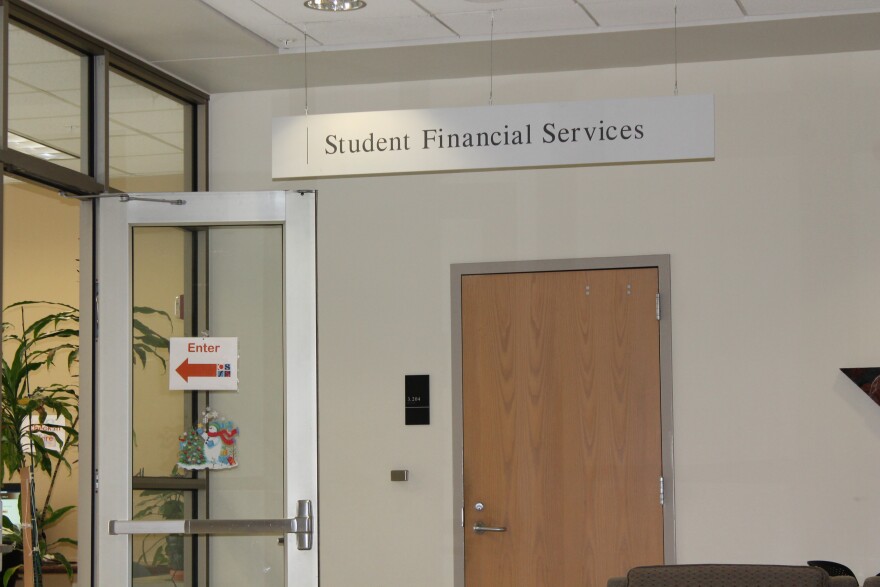In 2003, state lawmakers voted to cut the budgets for state colleges and universities by 11 percent per student. In return, lawmakers gave up their right to set the cost of tuition. They gave universities control over tuition so the schools could make up for the loss of state dollars.

Steve Leslie is the deputy vice chancellor of the UT System. He says since 2003 then the Texas Legislature has cut millions more in state funding for public universities.
“Reaching back to 2008, the great recession, right after that UT-Austin was cut $46 million recurring out of its operating budget. So it’s now trying to catch up over all these years,” Leslie said.
Catching up for most of the state’s public universities means raising tuition.
The University of Texas Board of Regents has approved an average $300 per year tuition increase, Texas A&M is raising its tuition rate by $200 per year.
Leslie said even that won’t cover the cost of a long- delayed pay raise for UT staff and faculty.
“To give a 3 percent salary increase at UT-Austin with about 20,000 staff and 2,500 faculty is about $20-million, so the tuition increase generates about $10 million, so it’s half that much," Leslie explained.
At a restaurant in downtown Austin, UT junior Juan Belman has a working student’s perspective. He recently spoke out during a SXSW forum on college affordability and debt.
“Any increase is an extra expense and me, personally, I’ve had the misfortune to not be able to attend school because I can’t afford it. So, these increases in tuition really take a toll on me. I have to put in more hours to work to divide my time because I have to work part-time and I have to go to school so I have to balance that time as well," Belman said.

Belman saves some money by living with his family in Austin. He pays for school with the help of federal Stafford loans and a type of emergency loan that has to be paid back within several months.
If he can’t repay the money quickly he’ll be blocked from enrolling in classes the following semester. With the extra $300 dollars in tuition he’ll have to spend each semester, Belman is worried he won’t graduate on time or at all.
“What if I don’t end up graduating because I’m not able to afford it because I’m not able to take any more loans. I’m not going to be able to find a good job to pay those loans. I don’t want to be another statistic where I’m defaulting on my loan," Belman explained.
Lt. Gov. Dan Patrick is among state leaders who think lawmakers may need to take back the right to control tuition rates, and cap them so they can’t continue to rise.
Gov. Greg Abbott hasn’t gone that far. But he has formed an advisory council to address the issue.

“We want to ensure that we improve higher education and we do so at a more affordable price that make higher education more accessible to more students and part of the job of this commission is they’re going to find ways that they can offer up to the legislature where we can as a state do a better job of providing access to a college education at a lower cost," Abbott explained.
Abbott said colleges and universities complaining about the continuing cuts in state funding have to find a way to be more efficient and effective in providing education. He’s suggested the amount of state funding may depend on a university’s ability to graduate students on time and with degrees that are high demand among Texas employers.
“And we need to find ways to tie funding to colleges and universities achieving those results," Abbott stressed.
Just who will pay what to support higher education is shaping up to be one of the big issues for debate when the state Legislature meets at the beginning of next year.


